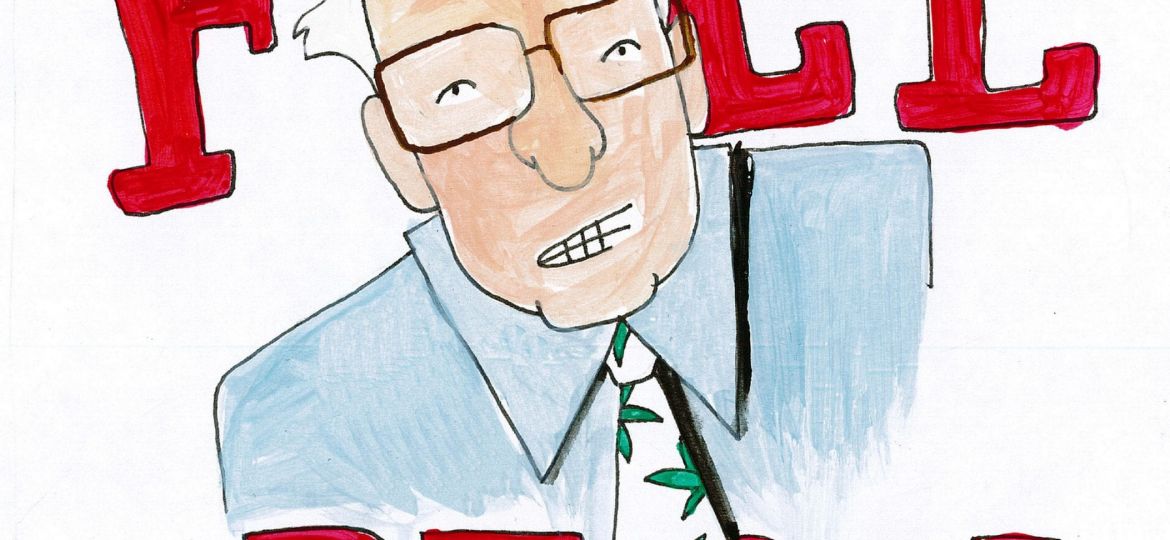
CNN recently hosted the first Democratic Presidential Primary Debate in the Wynn Resort in Las Vegas on Tuesday, Oct. 13. The debate featured Senator Bernie Sanders from Vermont, former Secretary of State Hillary Clinton, former Maryland governor Martin O’Malley, Senator Jim Webb of Virginia and former Rhode Island Governor Lincoln Chafee.
Some of the issues discussed during the debate included the state of the country’s economy, the environment, gun control and immigration. Perhaps even more notable than the debate itself, however, is the public’s reaction following the debate.
While CNN was quick to declare that “Hillary Rodham Clinton was the clear victor,” Michael Addady from Fortune noted that “multiple polls seem to show that most Americans don’t agree with these media pundits,” asserting that Sanders was the clear winner instead.
In contrast to Addady, John Cassidy from the New Yorker wrote an article largely criticizing the validity of post-debate, online polls and the results they represent. According to Cassidy, the only online poll using orthodox surveying techniques was conducted by the research firm Gravis Marketing – a poll which showed Clinton was the victor of the debate.
The question regarding who won the debate remains controversial. Nevertheless, I assert that the real winner of the first Democratic Presidential Primary Debate is indubitably Sanders. I don’t believe anyone, myself included, denies that Clinton performed well during the debate; she appeared poised, well-rehearsed and confident when she spoke.
However, in deciding the winner of the first Democratic Debate, I considered more factors than merely the ability to clearly articulate ideas and statements that the general public wanted to hear. Rather, I based my judgement on where each candidate stood prior to the debate in relation to their place following it and on whether or not each candidate was able to effectively use the debate platform to its fullest potential as a forum to voice opinions and articulate political goals.
Clinton was a household name before the debate and, of course, remains one following the debate. She undeniably used the debate as a means to solidify her stance on many of the issues the public is concerned about. On the other hand, Sanders utilized the debate platform to raise awareness of both his viability as a candidate and his particular positions on a variety of topics.
In a post at Vox, an online news source, Andrew Prokop noticed that approximately one-third of democrats didn’t know enough about Sanders to have formed an opinion about him prior to the debate.
“Even many of those who did know about him likely hadn’t been exposed to him all that much. So when Sanders made the case at length for why he’s a democratic socialist, many of these voters might not have heard that before—and might like it,” said Prokop.
In this respect, Sanders took full advantage of the debate and its nation-wide audience and used it as a means to not only make himself and his views more widely known and understood, but to also showcase his legitimate potential as a presidential candidate.
Furthermore, even though Cassidy remains skeptical of the post-debate online polls, he conceded that of the polls that showcased a win for Sanders, he consistently won by at least an 18-point margin. Cassidy even pointed out that Frank Luntz, a focus group leader for Fox News, sampled a focus group of Democratic voters after the debate, and the voters described Sanders’ performance as “for the people,” “strong,” “straightforward,” “confident,” “direct,” “sincere,” “powerful,” “educator” and “smart.”
Although Clinton had more name recognition going into the debate, the debate clearly offered the opportunity for the general public to discover Sanders.
On the subject of “discovering Sanders,” I would like to mention one more highlight of the debate which further demonstrates why I believe Sanders was the real victor. Perhaps the climax of the debate was when Clinton was defending herself against the scandal regarding her personal emails.
As noted by Brian Hanley for The Huffington Post, Sanders actually came to Clinton’s rescue and “demonstrated the decency that is the hallmark of his campaign” while also proving “that he’s no ordinary politician” when he asserted that the public was tired of hearing about Clinton’s “damn emails.” In making such a statement, Sanders was able to effectively encapsulate the core values of his campaign and himself as a candidate.
Ultimately, because of his strong moral convictions displayed in the debate, his well-executed utilization of the debate as a forum to better inform the American public about his platform and the increase in overall awareness facilitated by such a forum, I can’t help but conclude that Sanders was ultimately victorious. By using the debate to his full advantage, Sanders was able to ensure that both the American public and his fellow Democratic candidates were beginning to “Feel the Bern.”
Danny Vojcak ’19 (vojcak1@stolaf.edu) is from Naperville, Ill. His major is undecided.

